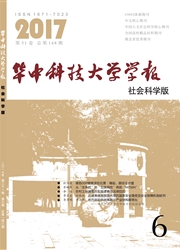

 中文摘要:
中文摘要:
霍克海默、阿多诺注意到:当大众文化流行时,大众意识是被操纵的,革命的阶级意识将无法形成。于是,他们从人类文明的源头、以文化批判视角来研究物化范畴。通过对卢卡奇的物化范畴加以概括和改造,并在韦伯的工具理性概念框架下,霍克海默、阿多诺提出了工具理性批判思想,并以工具理性批判为内在逻辑而展开了对西方主体性文化的批判。在此基础上,他们结合晚期资本主义社会和工业社会的特点,在工具理性批判的视域下,将对西方主体性文化的批判深化为技术批判和大众文化批判的理论,从而确立了西方马克思主义的文化批判的转向。
 英文摘要:
英文摘要:
Horkheimer and Adorno noted that the mass consciousness was manipulated and revolutionary class consciousness could not be formed when mass culture was popular. Thus, they studied the concept "rei- fication" as the views of criticism of culture from the source of human civilization. Based on the generalization and reconstruction of Lukacs' reification concept, they proposed a critique of instrumental rationality with which an inherent logic of establishing the criticism of western cultural subjectivity in the concept of Weber's instrumental rationality. Combining characteristics of the late capitalism and modern industrial society, in the perspective of instrumental rationality, they developed their critique of western cultural subjectivity and put forward criticism of technology and mass culture, with the result that they established the turning of western Marxism's culture criticism.
 同期刊论文项目
同期刊论文项目
 同项目期刊论文
同项目期刊论文
 期刊信息
期刊信息
